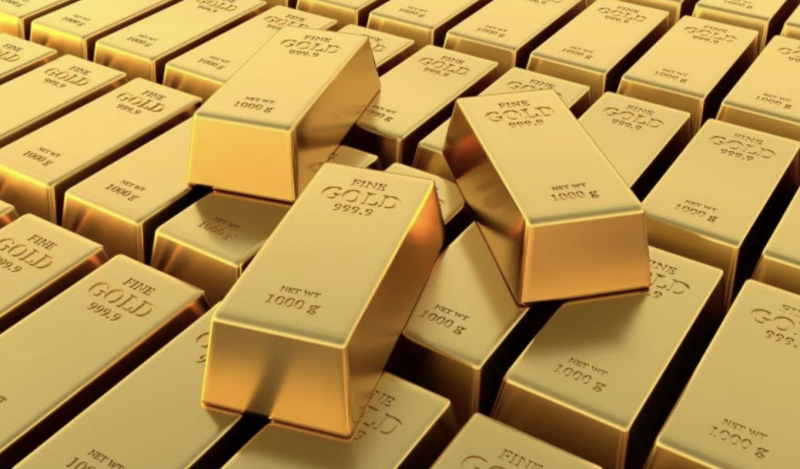
Lebanon's gold reserves are worth over $20.5 billion thanks to soaring world prices. (Credit: val-eric-go/Bigstock)
When the crisis commenced, selling a part of the gold reserves to offset Lebanon’s financial collapse was considered. Today, as gold prices increase, what if Lebanon decides to sell its gold? Three experts answered L’Orient-Le Jour’s questions.
Charbel Nahas, economist, former labor and telecommunications minister and founder of Citizens in a State (MMFD): It would be criminal to entrust the band of politicians who govern the country today with any resource and hope it would positively impact the national economy.
Also, the gold reserve is now the country’s only wealth and has proven to be an ultimate haven, to be accessed only in case of an emergency. Although we’ve been in an emergency for several years, selling gold, or any part of it, whatever its value, would be tantamount to depriving the people who are capable of bringing about real change [to the country] of the means they would need one day to do so.
Technically, I’m not against selling it to help the national economy. On the other hand, I am opposed to doing so for the benefit of the current political class, which is incompetent, and wasted $30 billion [mainly through subsidies and pegging policies] after the crisis broke, without achieving any tangible results in terms of economic recovery.
Law no. 42 was adopted during the war in 1986 and prohibits anyone from directly or indirectly using these gold reserves — placed with the Banque du Liban (BDL) and in the US — without authorization from Parliament.
In addition to this problem, it is necessary to ensure that the gold reserves quantities BDL declared are correct. All of the central bank’s audit reports attest that the institution cannot verify the amount of the gold held in vaults located in the US, and whether Lebanon can use it freely.
Garbis Iradian, chief economist for the MENA region and Central Asia at the Institute of International Finance (IFI): It is about time that BDL sells some of its gold reserves. I’ve been in favor of this solution since the beginning of the crisis, and I’m even more convinced given the current world prices.
To achieve this, I think Lebanon needs to sell at least 50 percent of its reserves, which would provide more than $10 billion that it would then distribute to small depositors [those with less than $100,000 in their restricted bank accounts]. Part of this sum should also be distributed to the poorest among the Lebanese population, even if they do not have bank accounts.
Of course, it all depends on safeguards and monitoring mechanisms to ensure the desired results are achieved. To ensure that there are no abuses, this should be done transparently, based on the lists of depositors available to the banks. There should also be a control system to ensure that no politician can benefit from the proceeds of gold sales.
This solution will benefit the Lebanese economy on several levels. Firstly, it will enable depositors to receive money and re-spend it, thus kick-starting the economic cycle. Secondly, it will allow more dollars to circulate in the national economy, appreciate the Lebanese lira on the market and increase the purchasing power of those who hold it. According to my estimates, this will bring the exchange rate to the US dollar down from around LL90,000t to LL70,000 or LL60,000.
Our forecasts showed that Lebanon’s GDP will be worth $25.6 billion in 2024. Today, the country’s gold reserves represent 81 percent of its GDP. This is unprecedented! A country does not need to have so much gold in reserve. For countries that do, the ratio is a maximum of 20 percent. It’s 2.3 percent for the US and South Africa, 3.9 percent for Turkey, 4.2 percent for Saudi Arabia, 6.5 percent for France and 10 percent for Russia.
Michel Santi, economist and central banks and financial markets specialist: Selling Lebanon’s gold reserves represents a major lifesaver for the country, and its effects on economic recovery could be important. But such a move should not be taken lightly. The sums that BDL would receive must be put to good use. It is out of the question for these sums to be used to pay off part of the central bank’s debt or the deficit. Corruption is another obstacle to the sale of the gold reserves, as the situation in Lebanon is such that half of the sums obtained would be channeled into other clientelist channels.
To address this, a supranational body needs to be set up, and the Lebanese leaders should not be in charge of how this envelope will be spent. No reform or solution should depend on the current political class.
One must also take the opportunity to fully dollarize the Lebanese economy, and create a digital Lebanese dollar [in the form of a local cryptocurrency, for example] to prevent the dollars obtained from immediately flowing out of the national economy.
Given current gold prices, I am more than ever in favor of selling Lebanese gold reserves, or even the entire stock, the total amount of which would be almost equivalent to the country’s GDP. In terms of final allocation, this sum should be used to boost consumption, improve road, hospital and health infrastructures, subsidize the education and health sectors and revamp the entire electricity sector.
But all this can only be achieved on two conditions: The Lebanese authorities should accept that they have no say in the matter and the Lebanese should show civic-mindedness when approaching these funds.
This article was originally published in L'Orient-Le Jour. Translated by Joelle El Khoury.